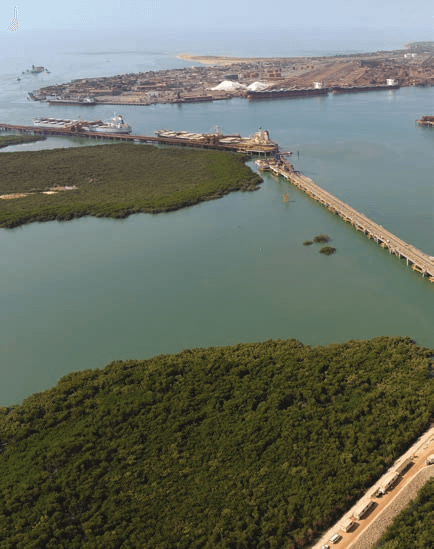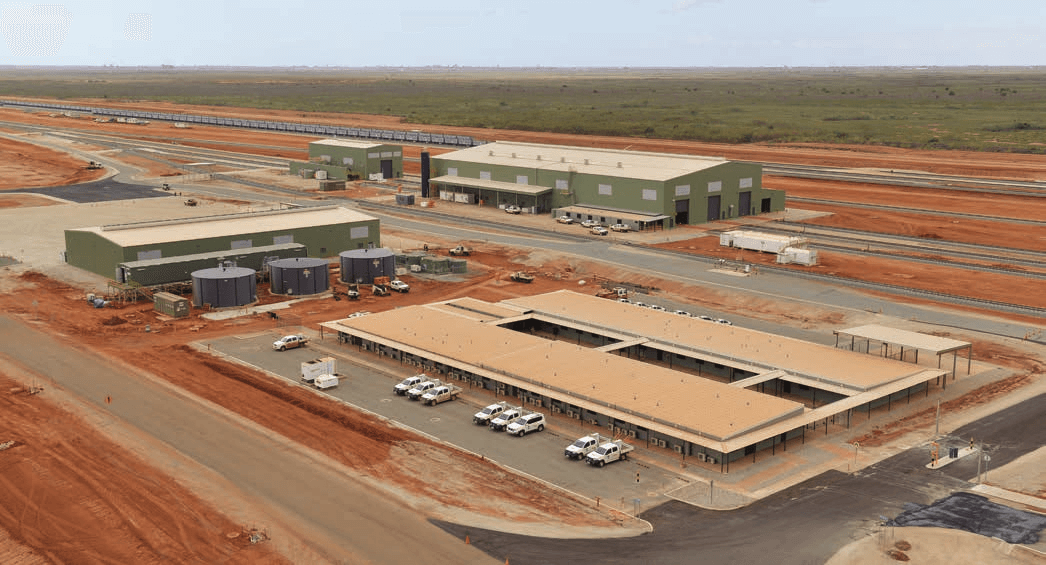The problems of public administration will end if politicians learn how to say “no”, and if bureaucrats know how to say “yes”.’ What a summary of the dilemma we face with over-regulation and compliance. These words belong to Prime Minister Narendra Modi of India, and were made at a function at his official residence in New Delhi in June, where I had the honour of him launching my second book – From Red Tape to Red Carpet… and Then Some. At that time, he said:
Welcome you all to my office and residence, and I thank Mrs Rinehart for creating this opportunity, which has brought us together. When I was in Australia last year, I had said that Australia had a special place in my heart. This book by Mrs Rinehart gives us a very useful insight and understanding of the potential and problems in your country and, much like mine, for all our differences, they are similar. So this special occasion, the release of the book, is a useful occasion to talk directly to the business and policymakers of both our countries, and I compliment Mrs Rinehart for how widely these writings show she is read.
I can say with my experience in public life that [the] writing of an academic form is so very different to the experiences of someone who is a practitioner like Mrs Ginainehart. Economists and government have a perspective, but theirs is so different to those who are real stakeholders.
I applaud the effort made by Mrs Rinehart in the latter category.
Many of us sitting here may or may not agree with her observations; however, it is an honest and yet interesting account written by someone who is really a stakeholder. It is to be admired for the courage it shows by saying many things not generally but directly in a way many would not dare.
It is one thing to argue about government policies in private, but to say it publicly and to pinpoint the policy issues like this takes courage.
Mrs Rinehart is not just an entrepreneur, but also a crusader for the cause. Her area may be mining, but she has her eyes all over. Her workplace is Australia, but she studies and compares to various other countries and then sees frankly what she thinks is good or bad in each.
This book is useful for analysing government policies and government processes across so many countries.
She met me twice in the last few months, but at no time did she talk to me about her business interests. Last time when she met me, she requested me to read this book. That is how this event today has been organised.
I can say that she said that all she had written was because she is concerned about the future of her society. She is trying to suggest the way in which they can be the best and be fulfilled.
While economies are important, what cannot be overlooked are the similarities and the cultural values we share, and the love for our respective countries and society.


It reflects in what Australians say is a ‘fair go’ and what is generally understood as level opportunity. This is necessary for creating opportunities and prosperity.
This is the foundation of our steps, which we have taken towards easing the regulatory environment in India. The most important reform for me so far is to allow self-certification in various activities. From students to entrepreneurs, we have allowed self-certification of documents and processes.
For misdeeds of a small number, we can’t punish all the stakeholders. So, trusting the citizens, including the corporate citizens, is the essence of our reforms. This is the basis of our efforts, as Mrs Rinehart says, towards transition from ‘Red Tape’ to ‘Red Carpet’.
The industry of red tape thrives on doubt. The road with the red carpet is built on trust, and we are thankful to Mrs Rinehart for highlighting the direction of our journey.
This book reminds me of one of my old statements. I have been saying that the problems of public administration will end if politicians learn how to say ‘no’ and if bureaucrats know how to say ‘yes’. This is the reason that we have devoted maximum energy on changing the mindset.
The good news is that it is working very efficiently, and if it works in India it can definitely work elsewhere. I would like to pay tribute to Mrs Rinehart for understanding our efforts in India.
She followed our elections of 2014 very closely. Since following what I said during the elections and what I am doing now, I am happy that our actions have made an impact on the national and international communities.
I congratulate Mrs Rinehart once again for her work. On her behalf and on my own behalf, I thank all of you for sparing your valuable time to be with us today.


Prime Minister Modi is a person to admire. In a short time, he has devoted enormous energy on changing the mindset in his country in favour of investment and business, to lift the
living standards of his people. India’s reputation had been quite the other way until Mr Modi came to office. His battle has been far harder than what we face in Australia; for instance, he
had decades of both British and USSR bureaucratic overhang policies.
In a little over a year in office, you can already see a change in the work culture of government and reduction in government tape, and the world is certainly noticing.
I am confident that we are on the right path and encourage us to do more, and [be] better and better.
India’s growth has taken off. In the second quarter of this year, India was at 7.5 per cent growth and is now in front of China as the world’s fastest-growing economy. India’s economic growth has doubled in less than a year of Mr Modi being in office. If this successful record isn’t amazing, please share with us which other economies have done this after less than a year in office.
Mr Modi has led and encouraged the public service into changing its attitude towards business and investment. His new public service chief said at the book launch:
‘We run a government now of peoplefriendly reforms that ease the regulatory environment in India.
‘Facilitating investment is now considered just as important as regulating it, and there is already a distinct change in attitude from government down.
‘Mrs Rinehart, we admire your courage and your entrepreneurial leadership. Australia and India have in common a trust in citizens, but government in practice sometimes behaves differently,
and that needs to change.
‘This book contains a practitioner’s perspective on what needs to be fixed, and policymakers would be wise to consider what we are doing, and the deregulation policies that you support.’
Throughout Asia, businesspeople I speak with cannot understand how Australia has been through the greatest resources boom in a century and still ended up so incredibly in debt.
As I write this, the national
government owes more than $375 billion. The deficit for this year is $35 billion, and Australia is forecast to overspend for at least the next four years, with a lot of hope still pinned on the recovery of our mining export prices.
It is hard to believe that government spending and debt are under control when we are still borrowing to make the interest payments. And the additional issue is state debt. Every state has
substantial borrowings. According to The Australian, at budget time:
- Victoria owed $32 billion
- Queensland was in debt to $38 billion
- South Australia $11 billion
- Tasmania, despite all of its Commonwealth support, owed $2 billion
- West Australia, after the benefit of the mining boom, carried $33 billion in debt!

West Australia, with all of its mining income of the last 10 years, now has a debt to revenue ratio at the highest in the country at over 80 per cent – substantially higher than any other state.
Australia needs to look at ways to urgently drive down this public sector debt. It needs to regain far closer control of its spending, and reduce the expense of government regulation, red tape and compliance. Too many forget that the costs of government regulations, approvals, permits, licences and compliance are unfair on small to medium businesses that can’t cope or afford them, and fail to appreciate that these costs impact our cost competitiveness and declining productivity in times of falling commodity prices.
Barnaby Joyce once warned, ‘If you do not manage debt, debt manages you’. He was ridiculed by the left – but he was right. Now we face major decisions about Australia’s future.
Australia needs more mega projects like Roy Hill. The question remains: where are the next financeable mega projects, and backers willing to take risk in Australia, including taking the risks with Australian Government overregulation and compliance?













